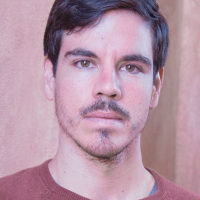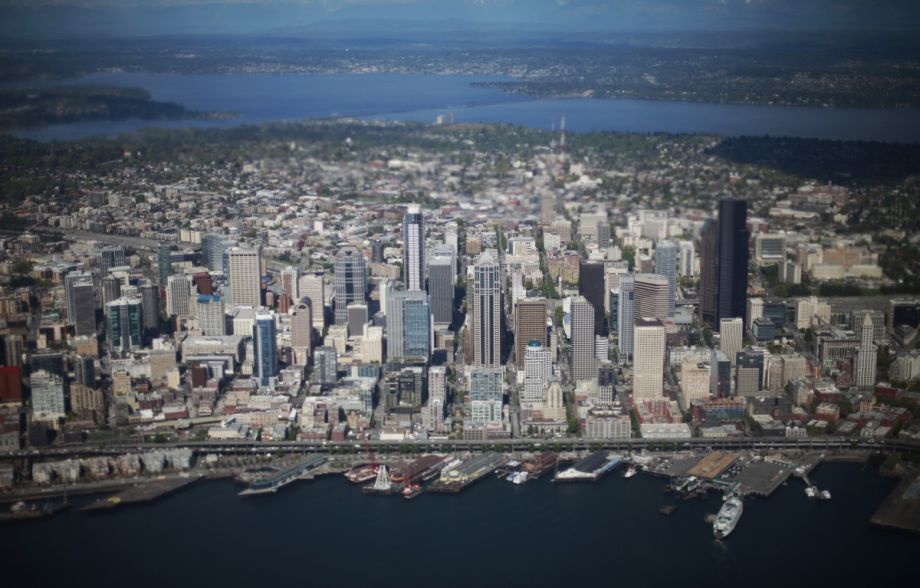Draze is a fixture on the Seattle hip-hop scene, his songs a lyrical history of the gentrification that’s driven friends, favorite shops — even his family — from the Central District. He talks about how his mom fled the neighborhood, where many black-owned businesses once thrived, after property taxes started rising on their old house in “The Hood Ain’t the Same.” The song that was archived in Seattle’s Museum of History and Industry by Mayor Ed Murray in 2015.
But now he’s going beyond the recording studio with a new game plan to stop gentrification’s push. He wants to get 100 black-owned businesses up and running in Seattle before the end of the year, with help from the city’s Office of Economic Development, black entrepreneurs who’ve already done well in Seattle and even members of the Seattle Seahawks.
The first successful entrepreneur to step up? Draze himself.
He says he’s working on rolling out an online music and culture magazine, “The Void,” that’ll feature black-owned businesses and showcase arts and music events around the city.
“We don’t have any media in the Northwest,” he says, referring to the black community. “So we’re not able to tell our stories, we’re not able to market our product.”
The program is moments away from debuting; Draze calls a recently published piece in a local newspaper his “soft announcement” that it’s incoming. The centerpiece will be a summer summit that includes a Shark Tank-inspired competition among minority entrepreneurs, and a career preparedness course with local pastor and activist Harvey Drake.
“He’s in the process of working on kind of an entrepreneurial school, which would train people with the different skills they would need but also help to plug people in with capital in different ways,” says Draze.
Details on the summit coming soon!!! #BuildingBlackWealth https://t.co/MMVjNae29E
— Draze (@DrazeExperience) March 15, 2017
The average hourly wage for black workers in Seattle dropped from $21 an hour in 2000 to $18 an hour in 2012. In that same time period, almost everyone else saw an average hourly wage increase by $2 to $3. And even though the city is hailed as one of the new global frontiers for entrepreneurship, black entrepreneurs, along with Hispanic entrepreneurs, only make up 5 percent of the minority entrepreneurial landscape.
The city’s Office of Economic Development says it’s trying to do more to bring in entrepreneurs from its large African diaspora population, and others from immigrant enclaves like Rainier Valley and the Central District around 23rd Street. Their Mobile Consulting Services dispatches staff out to these areas to interview small businesses and identify their pressing problems.
Yonas Seifu, a staffer at the OED, says entrepreneurs from these neighborhoods continue to vocalize what his office calls the three M’s. “Money, management and marketing,” he says.To tackle a few of those, this week they’re debuting a program called the Individual Development Account. Participating small business owners offer to put $500 in city-backed IDAs in order to qualify for the program. They then take 12 hours of workshops on financial management, and if they finish everything, the OED adds an additional $3,500 to their account.
The city’s widening its reach to immigrant communities like Draze’s Zimbabwean family. Hiring Seifu at OED — he immigrated to the U.S. from Ethiopia when he was 8 — is a step in that direction.
“There was previously zero representation within city government [from the East African community],” says Joe Mirabella, a spokesperson for the ODE. The department recognizes that diversifying the staff is “important [to reach] refugees that had a negative experience with government in their own country,” he says.
But what about Draze’s ambitious plan? Is creating 100 new black-owned businesses before 2018 a viable dream? Mirabella says absolutely.
Every year, about 9,000 businesses apply for permits in the Seattle area. “There’s no shortage of opportunity in this city right now. Most folks are making fairly decent wages and there’s money to spend,” he says, citing the city’s 3.4 percent unemployment rate. For immigrants or minority communities who think they’re onto a good business idea, Mirabella urges them to give his office a call.
As for Draze, he’s not harboring any illusions. “It’s absolutely ambitious, but if you don’t pick something that’s too big for you, you’re picking up the wrong thing. If I aim for 100 and I got 50? Man, I’m ecstatic. We get 27? I’m excited.”
The Equity Factor is made possible with the support of the Surdna Foundation.

Johnny Magdaleno is a journalist, writer and photographer. His writing and photographs have been published by The Guardian, Al Jazeera, NPR, Newsweek, VICE News, the Huffington Post, the Christian Science Monitor and others. He was the 2016-2017 equitable cities fellow at Next City.

















